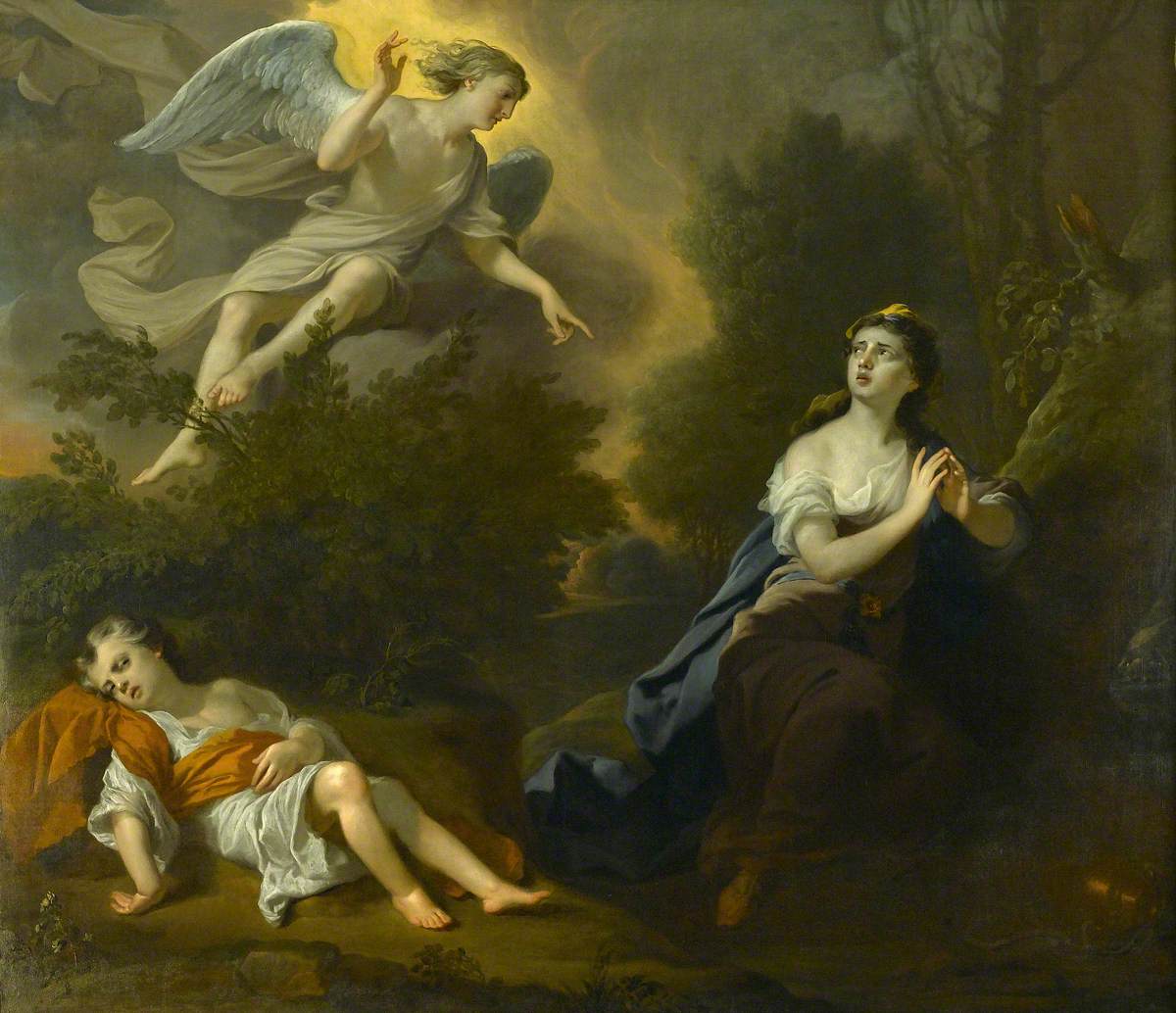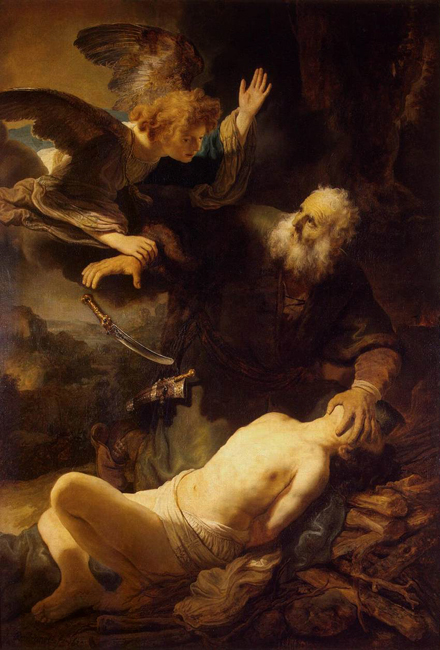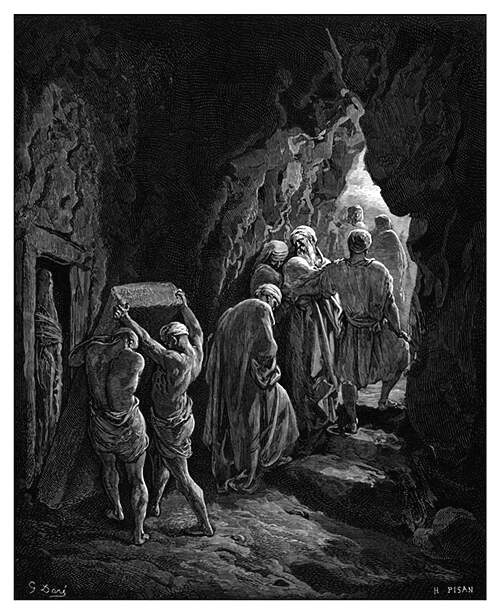The Book of Genesis establishes the foundation on which the Bible rests. It offers us insight into the nature of both God and humanity, and it begins a story of promise and hope that will culminate in the coming of Jesus. Over sixteen weeks, we’ll study the Genesis, focusing on the following:
- Session 1 - The Creation Stories (Genesis 1:1 – 2:25)
- Session 2 - Sin (Genesis 3:1 – 6:4)
- Session 3 - The Flood (Genesis 6:5 – 8:22)
- Session 4 - A New Low (Genesis 9:1 – 11:26)
- Session 5 - The Call (Genesis 11:27 – 14:24)
- Session 6 - The Covenant (Genesis 15:1 – 17:27)
- Session 7 - Abraham Wheels and Deals (Genesis 18:1 – 20:18)
- Session 8 - The Child of the Promise (Genesis 21:1 – 23:20)
- Session 9 - Isaac and Rebekah (Genesis 24:1 – 25:18)
- Session 10 - Jacob and Esau (Genesis 25:19 – 28:9)
- Session 11 - Jacob Is Jacob (Genesis 28:10 – 31:55)
- Session 12 - Jacob Meets Esau and God (Genesis 32:1 – 36:43)
- Session 13 - Joseph and His Brothers (Genesis 37:1 – 38:30)
- Session 14 - Joseph, Interpreter of Dreams (Genesis 39:1 – 41:57)
- Session 15 - Joseph and His Brothers, part 2 (Genesis 42:1 – 45:28)
- Session 16 - Israel in Egypt (Genesis 46:1 – 50:26)
During our eighth discussion in this series, we looked at Genesis 21:1 – 23:20. The passage is below:
Genesis 21:1 – 23:20
The Lord dealt with Sarah as he had said, and the Lord did for Sarah as he had promised. Sarah conceived and bore Abraham a son in his old age, at the time of which God had spoken to him. Abraham gave the name Isaac to his son whom Sarah bore him. And Abraham circumcised his son Isaac when he was eight days old, as God had commanded him. Abraham was a hundred years old when his son Isaac was born to him. Now Sarah said, “God has brought laughter for me; everyone who hears will laugh with me.” And she said, “Who would ever have said to Abraham that Sarah would nurse children? Yet I have borne him a son in his old age.” The child grew, and was weaned; and Abraham made a great feast on the day that Isaac was weaned.
But Sarah saw the son of Hagar the Egyptian, whom she had borne to Abraham, playing with her son Isaac. So she said to Abraham, “Cast out this slave woman with her son; for the son of this slave woman shall not inherit along with my son Isaac.” The matter was very distressing to Abraham on account of his son. But God said to Abraham, “Do not be distressed because of the boy and because of your slave woman; whatever Sarah says to you, do as she tells you, for it is through Isaac that offspring shall be named for you. As for the son of the slave woman, I will make a nation of him also, because he is your offspring.”
So Abraham rose early in the morning, and took bread and a skin of water, and gave it to Hagar, putting it on her shoulder, along with the child, and sent her away. And she departed, and wandered about in the wilderness of Beer-sheba. When the water in the skin was gone, she cast the child under one of the bushes. Then she went and sat down opposite him a good way off, about the distance of a bowshot; for she said, “Do not let me look on the death of the child.” And as she sat opposite him, she lifted up her voice and wept. And God heard the voice of the boy; and the angel of God called to Hagar from heaven, and said to her, “What troubles you, Hagar? Do not be afraid; for God has heard the voice of the boy where he is. Come, lift up the boy and hold him fast with your hand, for I will make a great nation of him.” Then God opened her eyes and she saw a well of water. She went, and filled the skin with water, and gave the boy a drink. God was with the boy, and he grew up; he lived in the wilderness, and became an expert with the bow. He lived in the wilderness of Paran; and his mother got a wife for him from the land of Egypt.
At that time Abimelech, with Phicol the commander of his army, said to Abraham, “God is with you in all that you do; now therefore swear to me here by God that you will not deal falsely with me or with my offspring or with my posterity, but as I have dealt loyally with you, you will deal with me and with the land where you have resided as an alien.” And Abraham said, “I swear it.” When Abraham complained to Abimelech about a well of water that Abimelech’s servants had seized, Abimelech said, “I do not know who has done this; you did not tell me, and I have not heard of it until today.” So Abraham took sheep and oxen and gave them to Abimelech, and the two men made a covenant. Abraham set apart seven ewe lambs of the flock. And Abimelech said to Abraham, “What is the meaning of these seven ewe lambs that you have set apart?” He said, “These seven ewe lambs you shall accept from my hand, in order that you may be a witness for me that I dug this well.” Therefore that place was called Beer-sheba; because there both of them swore an oath. When they had made a covenant at Beer-sheba, Abimelech, with Phicol the commander of his army, left and returned to the land of the Philistines.
Abraham planted a tamarisk tree in Beer-sheba, and called there on the name of the Lord, the Everlasting God. And Abraham resided as an alien many days in the land of the Philistines.
After these things God tested Abraham. He said to him, “Abraham!” And he said, “Here I am.” He said, “Take your son, your only son Isaac, whom you love, and go to the land of Moriah, and offer him there as a burnt offering on one of the mountains that I shall show you.”
So Abraham rose early in the morning, saddled his donkey, and took two of his young men with him, and his son Isaac; he cut the wood for the burnt offering, and set out and went to the place in the distance that God had shown him. On the third day Abraham looked up and saw the place far away. Then Abraham said to his young men, “Stay here with the donkey; the boy and I will go over there; we will worship, and then we will come back to you.” Abraham took the wood of the burnt offering and laid it on his son Isaac, and he himself carried the fire and the knife. So the two of them walked on together. Isaac said to his father Abraham, “Father!” And he said, “Here I am, my son.” He said, “The fire and the wood are here, but where is the lamb for a burnt offering?” Abraham said, “God himself will provide the lamb for a burnt offering, my son.” So the two of them walked on together. When they came to the place that God had shown him, Abraham built an altar there and laid the wood in order. He bound his son Isaac, and laid him on the altar, on top of the wood. Then Abraham reached out his hand and took the knife to kill his son.
But the angel of the Lord called to him from heaven, and said, “Abraham, Abraham!” And he said, “Here I am.” He said, “Do not lay your hand on the boy or do anything to him; for now I know that you fear God, since you have not withheld your son, your only son, from me.” And Abraham looked up and saw a ram, caught in a thicket by its horns. Abraham went and took the ram and offered it up as a burnt offering instead of his son. So Abraham called that place “The Lord will provide”; as it is said to this day, “On the mount of the Lord it shall be provided.”
The angel of the Lord called to Abraham a second time from heaven, and said, “By myself I have sworn, says the Lord: Because you have done this, and have not withheld your son, your only son, I will indeed bless you, and I will make your offspring as numerous as the stars of heaven and as the sand that is on the seashore. And your offspring shall possess the gate of their enemies, and by your offspring shall all the nations of the earth gain blessing for themselves, because you have obeyed my voice.” So Abraham returned to his young men, and they arose and went together to Beer-sheba; and Abraham lived at Beer-sheba.
Now after these things it was told Abraham, “Milcah also has borne children, to your brother Nahor: Uz the firstborn, Buz his brother, Kemuel the father of Aram, Chesed, Hazo, Pildash, Jidlaph, and Bethuel.” Bethuel became the father of Rebekah. These eight Milcah bore to Nahor, Abraham’s brother. Moreover, his concubine, whose name was Reumah, bore Tebah, Gaham, Tahash, and Maacah.
Sarah lived one hundred twenty-seven years; this was the length of Sarah’s life. And Sarah died at Kiriath-arba (that is, Hebron) in the land of Canaan; and Abraham went in to mourn for Sarah and to weep for her.
Abraham rose up from beside his dead, and said to the Hittites, “I am a stranger and an alien residing among you; give me property among you for a burying place, so that I may bury my dead out of my sight.” The Hittites answered Abraham, “Hear us, my lord; you are a mighty prince among us. Bury your dead in the choicest of our burial places; none of us will withhold from you any burial ground for burying your dead.” Abraham rose and bowed to the Hittites, the people of the land. He said to them, “If you are willing that I should bury my dead out of my sight, hear me, and entreat for me Ephron son of Zohar, so that he may give me the cave of Machpelah, which he owns; it is at the end of his field. For the full price let him give it to me in your presence as a possession for a burying place.” Now Ephron was sitting among the Hittites; and Ephron the Hittite answered Abraham in the hearing of the Hittites, of all who went in at the gate of his city, “No, my lord, hear me; I give you the field, and I give you the cave that is in it; in the presence of my people I give it to you; bury your dead.” Then Abraham bowed down before the people of the land. He said to Ephron in the hearing of the people of the land, “If you only will listen to me! I will give the price of the field; accept it from me, so that I may bury my dead there.” Ephron answered Abraham, “My lord, listen to me; a piece of land worth four hundred shekels of silver—what is that between you and me? Bury your dead.”
Abraham agreed with Ephron; and Abraham weighed out for Ephron the silver that he had named in the hearing of the Hittites, four hundred shekels of silver, according to the weights current among the merchants. So the field of Ephron in Machpelah, which was to the east of Mamre, the field with the cave that was in it and all the trees that were in the field, throughout its whole area, passed to Abraham as a possession in the presence of the Hittites, in the presence of all who went in at the gate of his city. After this, Abraham buried Sarah his wife in the cave of the field of Machpelah facing Mamre (that is, Hebron) in the land of Canaan. The field and the cave that is in it passed from the Hittites into Abraham’s possession as a burying place.





No comments:
Post a Comment